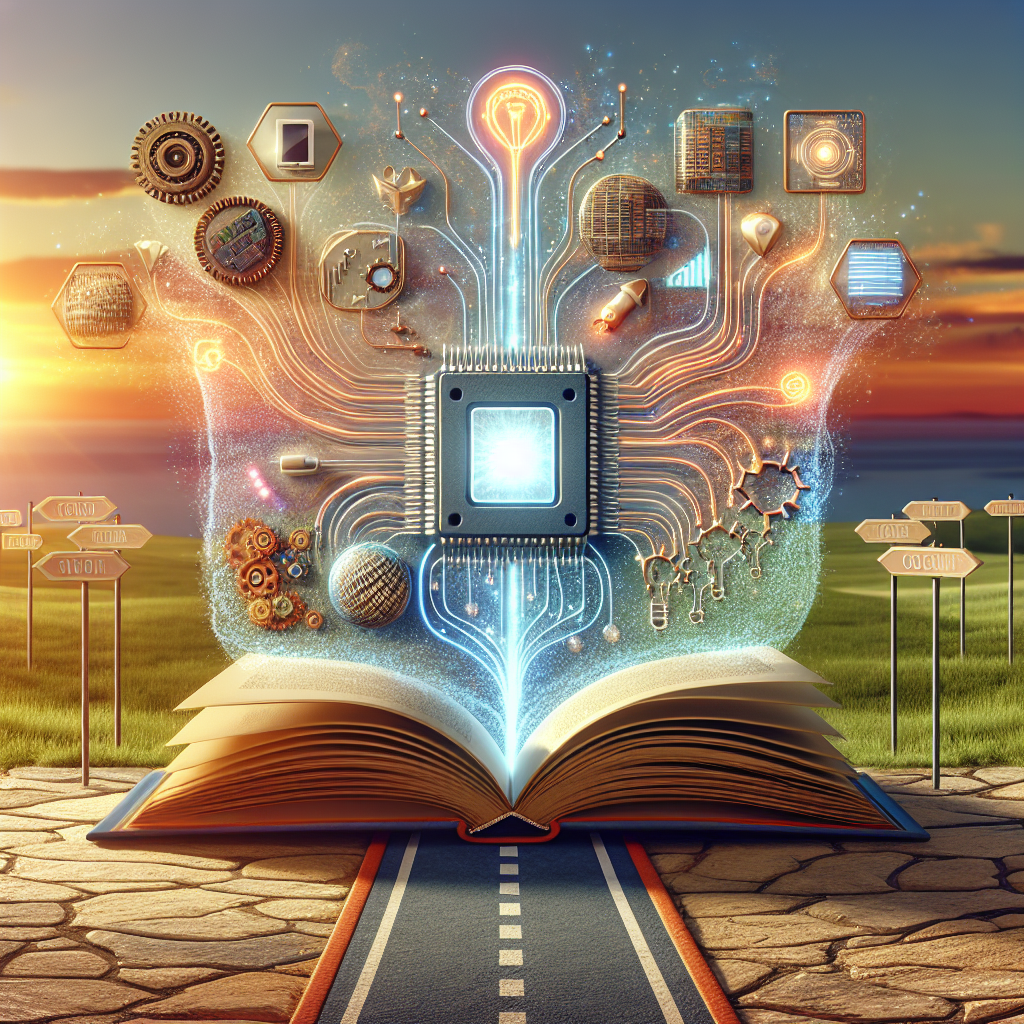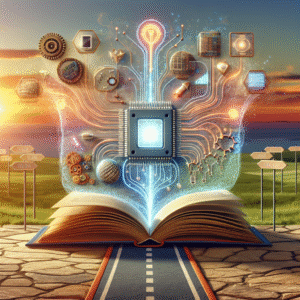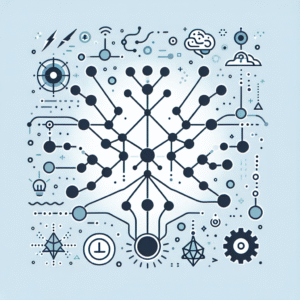The world of artificial intelligence (AI) is expanding at an unprecedented pace, influencing various industries and shaping the future of technology. Whether you’re a student, a professional looking to pivot careers, or simply curious about AI, embarking on an AI education journey can be both exciting and daunting. This guide will explore essential resources and provide tips to help you transition from a beginner to an AI hero.
Understanding AI Basics
Before diving into the complex aspects of AI, it’s crucial to grasp the fundamentals. AI is a multi-disciplinary field that incorporates computer science, mathematics, cognitive science, and more. Starting with the basics will provide a solid foundation for advanced concepts.
Key Concepts
-
Artificial Intelligence: Machines mimicking human cognitive functions such as problem-solving and learning.
-
Machine Learning (ML): A subset of AI focused on systems that learn from data.
-
Deep Learning: A subset of ML involving neural networks with many layers, inspired by the human brain’s structure.
- Neural Networks: Algorithms modeled after the human brain, essential for deep learning.
Learning Resources
-
Online Courses: Platforms like Coursera, edX, and Udacity offer comprehensive AI courses. Andrew Ng’s "Machine Learning" course on Coursera is highly recommended for beginners.
-
Books: "Artificial Intelligence: A Guide to Intelligent Systems" by Michael Negnevitsky and "Deep Learning" by Ian Goodfellow are excellent starting points.
- Websites and Blogs: Websites like Towards Data Science and the AI section of Medium provide accessible articles and tutorials.
Building Mathematical Foundations
Mathematics is the backbone of AI. Understanding key mathematical concepts is vital for comprehending how AI models work.
Essential Math Areas
-
Linear Algebra: Fundamental for working with data in ML algorithms. Online resources like Khan Academy or "Linear Algebra and Its Applications" by Gilbert Strang can be helpful.
-
Calculus: Understanding gradients and optimization is crucial for algorithms like gradient descent.
- Probability and Statistics: Essential for data analysis and understanding algorithms.
Recommended Resources
-
Online Courses: "Mathematics for Machine Learning" on Coursera is designed for AI beginners.
-
Books: "The Elements of Statistical Learning" by Hastie et al. is a comprehensive resource.
- Interactive Tools: Platforms like Wolfram Alpha provide a hands-on approach to math problems.
Programming Skills and Tools
Programming is a core skill in AI development. Python is the most popular language due to its simplicity and the plethora of AI libraries available.
Key Programming Languages and Tools
-
Python: Learn the basics through interactive platforms like Codecademy or Python.org tutorials.
-
Jupyter Notebooks: An essential tool for developing AI models, providing an interactive computing environment.
- Libraries: Familiarize yourself with AI libraries like TensorFlow, Keras, PyTorch, and scikit-learn.
Practice and Application
-
Kaggle: Engage with datasets and participate in competitions to apply your skills in real-world scenarios.
-
GitHub: Explore open-source projects and collaborate with others to enhance your learning.
- Personal Projects: Implement small projects to consolidate your learning and build a portfolio.
Gaining Practical Experience
After grasping the theoretical aspects, practical experience is invaluable. Engage in projects and challenges that allow you to apply your knowledge.
Platforms for Practical Experience
-
Coursera Specializations: Many courses offer capstone projects that simulate real-world challenges.
-
Udacity Nanodegree: Programs offer hands-on experience with guidance from industry experts.
- Hackathons: Participate in AI hackathons to solve problems creatively and collaboratively.
Networking and Community Involvement
-
Meetups and Conferences: Attend AI-focused events to learn from experts and network with peers.
-
Online Forums: Engage with communities on platforms like Reddit’s r/MachineLearning or Stack Overflow.
- Blogs and Newsletters: Follow influential AI thinkers and subscribe to newsletters to stay updated on trends and new research.
Ethics and Responsible AI
As you delve deeper into AI, understanding the ethical implications becomes essential. AI systems can significantly impact society, making responsible AI practices crucial.
Key Considerations
-
Bias and Fairness: Ensure your models do not perpetuate existing biases.
-
Transparency: Develop AI systems whose decision-making processes are understandable and accountable.
- Privacy and Security: Protect user data and privacy in AI applications.
Resources and Reading
-
Books: "Weapons of Math Destruction" by Cathy O’Neil and "Artificial Intelligence Ethics and Social Change" by Mark Coeckelbergh.
-
Online Courses: "AI for Everyone" by Andrew Ng covers the ethical considerations and impacts of AI.
- Research Papers: Engage with academic work to understand ongoing debates and solutions.
Staying Current
The field of AI is rapidly evolving, making continuous learning a necessity.
Strategies for Staying Up-To-Date
-
Research Papers: Websites like arXiv.org host cutting-edge research in AI.
-
Podcasts and Webinars: Listen to AI-focused podcasts such as "Data Skeptic" or attend webinars for insights and trends.
- AI News Sites: Keep abreast of the latest developments through sites like MIT Technology Review’s AI section.
Lifelong Learning
-
Advanced Degrees: Consider pursuing a Master’s or Ph.D. in AI for deep specialization.
-
Certification Programs: Certifications like Google’s TensorFlow Developer or Microsoft’s Azure AI Engineer can enhance your credibility.
- Open Source Contribution: Contributing to open-source projects on platforms like GitHub can reinforce learning and showcase your skills.
Conclusion
Embarking on an AI education journey is a remarkable path filled with both challenges and rewards. By leveraging key resources, building foundational knowledge, gaining practical experience, understanding ethical responsibilities, and committing to lifelong learning, you can transform from a beginner to an AI hero. Embrace the journey, and you’ll find yourself at the forefront of a technological revolution that has the potential to reshape the world.




